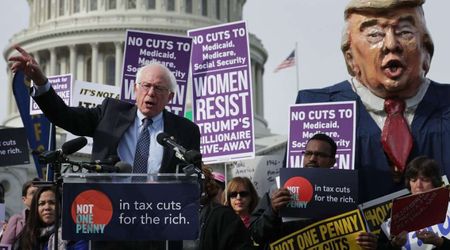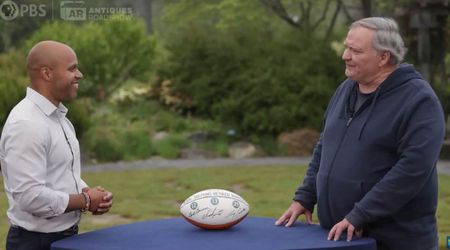America's Top Selling Beer Bud Light Sees Sales Drop by Nearly 30% Amid Boycott Calls

Bud Light sales have seen a significant decline over the last few weeks in the wake of boycotts. Bud Light, one of America's favorite beers, has been in the eye of the storm after partnering with trans TikTok star Dylan Mulvaney. While many have boycotted the brand over the move, the company has donated thousands to an LGBTQ+ group reiterating its stance on the matter.
The latest data provided by Bump Williams Consulting and Nielsen IQ to Newsweek reveals a staggering 29.5% drop in sales volume for the week ending May 20 compared to the same period last year. Furthermore, sales revenue declined by 25.7% during this period.
Let's delve into the timeline of Bud Light, the US's number one selling beer, as the clouds of its dethronement darken, and explore the potential strategies for its revival.
Backlash After Partnering with Dylan Mulvaney
Bud Light's parent company, Anheuser-Busch, has faced financial challenges due to boycotts after partnering with Dylan Mulvaney to commemorate "365 days of girlhood". The decision to send customized Bud Light cans featuring Mulvaney's face sparked controversy and led to a significant backlash on social media.
As a result, Bud Light is experiencing losses week after week since the boycott gained traction in April. In the week ending May 13, Bud Light sales dropped by 28.4% compared to the previous year.
The Continuous Decline in Bud Light's Market Performance
Bud Light's sales decline has been a concerning trend over the past few weeks, with a steady decrease in its market performance. According to data from Bump Williams Consulting and Nielsen IQ, the decline began gaining momentum in April after the beer brand partnered with Mulvaney. Sales dropped by 28.4% from the previous year for the week ending May 13, followed by a further 29.5% decline for the week ending May 20.
This alarming downward trend raises questions about the future of Bud Light and highlights the need for a comprehensive strategy to reverse the declining sales trajectory.

Coors Light and Miller Lite's Surging Sales
While Bud Light struggles, its competitors, Coors Light and Miller Lite, have seized the opportunity to gain market share. These brands have witnessed remarkable sales growth, showcasing the challenges Bud Light face in a highly competitive market. The rise of these competitors further intensifies the pressure on Bud Light to regain its market position.

Bud Light's Promotional Rebate Strategy

In an effort to boost sales, Bud Light launched a promotional rebate strategy, aiming to entice consumers ahead of the Memorial Day weekend. The promotion offered a rebate equivalent to the purchase price of one 15-pack or larger, up to $15, effectively making the products free. This bold move reflects the urgency Bud Light feels to recover from its sales decline and regain consumer confidence. However, the effectiveness of this strategy remains to be seen and will be closely monitored.
What did the CEO have to say?
Brendan Whitworth, the CEO of Anheuser-Busch, addressed the boycott and controversy surrounding Bud Light's partnership with Dylan Mulvaney. In his statement, Whitworth emphasized that the company never intended to be part of a divisive discussion and reiterated its commitment to bringing people together over a beer. While the CEO's response acknowledges the concerns raised by the boycott, it does not take a definitive stance on whether the partnership was a mistake, leaving room for further reflection and evaluation.

The Challenges and Strategies for Bud Light's Revival
Bud Light faces significant challenges in reviving its sales and reclaiming its position as the leading beer brand. The decline in sales, coupled with the rise of competitors, necessitates a comprehensive strategic approach. To overcome these hurdles, Bud Light may require a multi-faceted approach. By addressing challenges head-on, implementing innovative strategies, and demonstrating a commitment to consumer needs and values, Bud Light can navigate the competitive landscape and regain its position as a dominant player in the beer market.
























